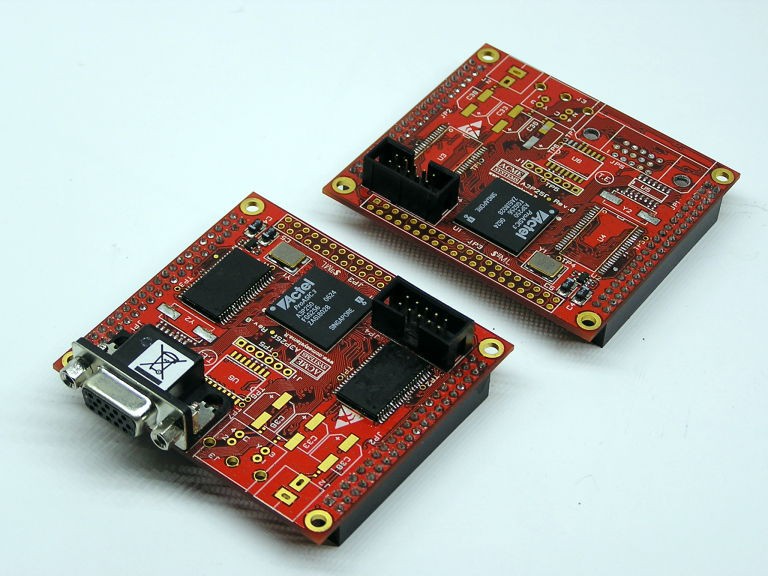By whygee on Friday 19 December 2008, 01:36 - Electronics
The FoxVHDL and the Colibri boards from ACME Systems come with 2 SRAM chips of 512K Bytes, so one application can benefit from one megabyte of 32-bit low-latency access. But even 1 megabyte may be too small for some uses. Some time ago, I found a way to extend the capacity : piggy-back soldering of another SRAM chip.

To keep the chips identical and avoid timing unbalance, I had to take the SRAMs from another board, but it is not a concern since this second board will be used for some purpose that does not need SRAMs.
I should stress of course that not only desoldering, but also re-soldering is difficult, but it went well, thanks to special, adapted tools.
Of course, there is a trick : memory is not simply expanded this way. One has to reserve a new address bit, or both memories will be mapped to the same addresses. I have chosen to not connect the Chip Select pins of the additional chips, so they will be wired later to another unused FPGA output.

If you want to attempt this hack on your board (whether ACME's or any of the other FPGA boards with static RAM), don't forget that adding pins on a bus adds capacitance, and slows the signals down. The clock frequency won't be as fast as before, so make extensive tests to assert the new working parameters.
One way to keep the frequency high is either to use a larger SRAM chip (like Cypress or IDT 512x16b or 1Mx16 but they are difficult to find and expensive), or faster SRAMs : ACME uses 12ns chips, but other compatible chips are available with 10ns and 8ns access times (try Farnell). Also, you can control the rise/fall times with the I/O current options of the ProASIC3 pads, they can be set to several values.
Next step : using even higher-frequency, synchronous Static RAM, because they have a much higher bandwidth. However I don't know yet how to control the tight timings...
20200407:
I don't remember what I wanted to use the other board for...
 Yann Guidon / YGDES
Yann Guidon / YGDES
Discussions
Become a Hackaday.io Member
Create an account to leave a comment. Already have an account? Log In.